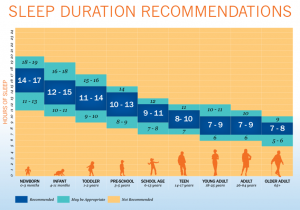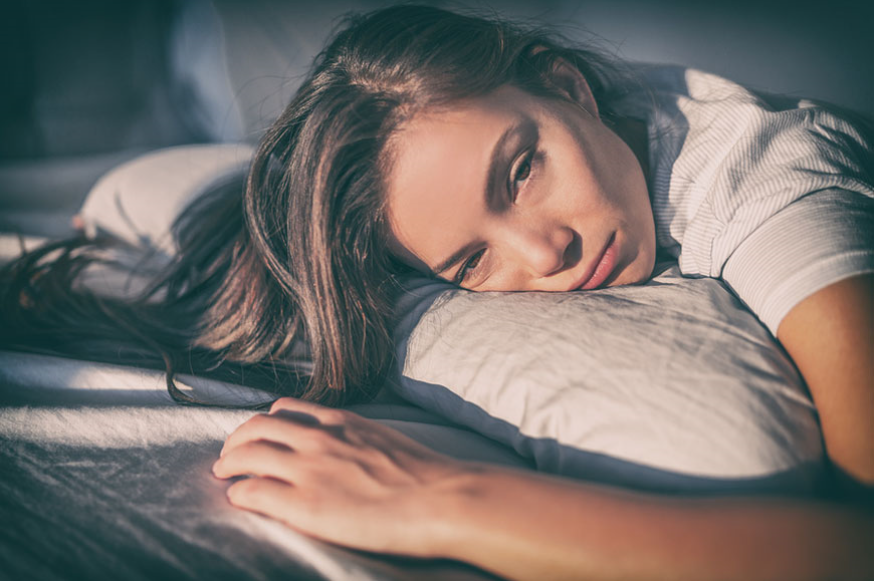Sleep plays a critical role in brain function and systemic physiology, including metabolism, appetite regulation, and the functioning of immune, hormonal, and cardiovascular systems. Normal healthy sleep is characterized by sufficient duration, good quality, appropriate timing and regularity, and the absence of sleep disturbances and disorders. There are ~100 sleep disorder classifications; however, they are typically manifested in one of the following three ways:
– failure to obtain the necessary amount or quality of sleep (sleep deprivation);
– an inability to maintain sleep continuity (disrupted sleep, also called sleep fragmentation, difficulty maintaining sleep, and middle insomnia);
– events that occur during sleep (eg, sleep apnea, restless legs syndrome);
The effects of sleep deprivation
While it may seem like losing sleep isn’t such a big deal, sleep deprivation has a wide range of negative effects that go way beyond daytime drowsiness. Lack of sleep affects your judgment, coordination, and reaction times. In fact, sleep deprivation can affect you just as much as being drunk.
The effects include:
- Fatigue, lethargy, and lack of motivation;
- Moodiness and irritability; increased risk of depression;
- Decreased sex drive; relationship problems;
- Impaired brain activity; learning, concentration, and memory problems;
- Reduced creativity and problem-solving skills; difficulty making decisions;
- Inability to cope with stress, difficulty managing emotions;
- Premature skin aging;
- Weakened immune system; frequent colds and infections; weight gain;
- Impaired motor skills and increased risk of accidents; hallucinations and delirium;
- Increased risk of serious health problems including stroke, diabetes, high blood pressure, heart disease, Alzheimer’s disease, and certain cancers;
How sleep deprivation can add to your waistline
Sleep deprivation has a direct link to overeating and weight gain.
There are two hormones in your body that regulate normal feelings of hunger and fullness. Ghrelin stimulates appetite, while leptin sends signals to the brain when you are full. However, when you don’t get the sleep you need, your ghrelin levels go up, stimulating your appetite so you want more food than normal, and your leptin levels go down, meaning you don’t feel satisfied and want to keep eating. So, the more sleep you lose, the more food your body will crave.
How Much Sleep Do We Need?
The amount of sleep you need depends on various factors — especially your age. While sleep needs vary significantly among individuals, consider these general guidelines for different age groups:

In addition,
Newborns don’t have an established circadian rhythm; it isn’t established they’re 2-3 months old. Infants tend to sleep in several phases throughout the day (polyphasic), sleeping from 2.5 to 4 hours at a time. By around 12 months, infants start sleeping more at night. At this point, they start to sleep more like adults in that there are no bodily movements during REM (rapid eye movement) sleep, which is when people dream. Previous to 12 months, babies will move during REM sleep.
School-Age Children
Recognizing when school-age children aren’t sleeping enough can be difficult as tired kids tend to not slow down, they speed up. This includes resisting going to bed at night, even though they’re tired. This can lead to issues such as sleep apnea (when people stop breathing for periods throughout the night). It was previously believed that sleep apnea only occurred in adults, but now the America Academy of Pediatrics recommends ask about and screen for sleep apnea in children.
Teens
According to the US National Sleep Foundation, circadian rhythms shift after puberty, making teens want to go to bed after 11 pm and wake up later. With teenagers having the earliest start times, they are often getting up at 5 am to be at school by 7 am, which makes it rarer that a teen will get enough sleep. One study found that only 15% of teens reported sleeping 8.5 hours per night.
Because teens are sleep-deprived during the week, they sleep more on the weekend, which can make the problem worse. One of the top recommendations from sleep experts is to fall asleep and wake up at the same time every day.
A problem that many teens share with adults is the use of back-lit devices late at night, which can prevent sleepers from getting quality sleep.
Lack of sleep in teenagers has a long list of drawbacks, including:
– drowsy driving leading to car accidents;
– reduced emotional control, leading to more fighting with parents, siblings, and peers;
– poor cognitive ability, focus, decision making, and reaction time, leading to poor grades, athletic performance, and choices;
– poor impulse control, which can create and strengthen bad habits;
– skin issues such as acne;
Adults tend to not get enough sleep for a list of reasons:
– stress from job and family;
– consuming caffeine too late in the day;
– looking at blue-light emitting devices within 90 minutes of going to bed;
– inconsistent sleep schedule;
– eating too late;
– lack of exercise;
– issues with the mattress: too hot, too soft or hard, and/or old;
Seniors
Many adults aged 65 and older nap during the day because they don’t get enough quality sleep at night. One of the reasons they don’t sleep well is because of illnesses and take medications which can disturb sleep.
Another common issue among seniors is that it takes them longer to go to sleep, with one study showing 13% of men over 65 and 36% of women taking more than 30 minutes to fall asleep.
According to the US National Sleep Foundation, seniors have trouble sleeping for several reasons. One is the change in the phases of sleep, where many seniors spend more time in the lighter phases of sleep and less in the deeper, more restorative phases.
Sleep fragmentation (waking up during the night) is also common, which greatly reduces the ability to wake up well rested.
Women need on average 20 more minutes per night more than men, though some women need more than that. One theory as to why is because women multitask more than men and have busier schedules, which results in their brains using more energy and therefore needing more recuperation. However, if this theory is correct, then men that have complex jobs that require a lot of decision-making and lateral thinking will need more than the average male as well.
According to the US National Institutes of Health, women do sleep more than men. However, there are several things that can make it difficult for women to get enough quality sleep:
- Their male partners’ snore (40% of men snore as opposed to 24% of women);
- Menopause;
- Pregnancy;
- Stress from family and job responsibilities;
Pregnant women need more sleep,especially in their:
- first trimester, which includes more sleepiness during the day. This is due to the rise in progesterone, as well as the metabolic changes the body is going through. During this period, they will also have more frequent bathroom visits to urinate, due to the uterus pushing on the bladder. Swollen breasts, cramps, and nausea can also make it hard to fall asleep.
- third trimester, when sleep gets worse again due to (RLS), frequent urination, anxiety about the upcoming delivery, and lower back pain.
After the baby is born, new mothers will often find it easier to sleep because they’re sleep deprived. Babies are often awake every hour to few hours, so mothers can’t get into the deeper, restful phases of sleep, so when they get a chance to sleep, the brain will try to make up the sleep deficit as quickly as possible.
Sleep is absolutely essential for your health. The quality of your sleep directly affects your mental and physical health and the quality of your waking life, including your productivity, emotional balance, brain and heart health, immune system, creativity, vitality, and even your weight. No other activity delivers so many benefits with so little effort!
References:
https://www.ncbi.nlm.nih.gov/pmc/articles/PMC5449130/
https://www.helpguide.org/articles/sleep/sleep-needs-get-the-sleep-you-need.htm
https://www.sleepfoundation.org/
https://www.sleephealthjournal.org/

Leave a Reply